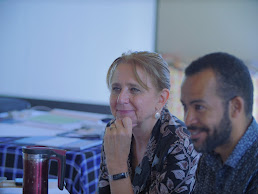What better gift can there be during Christmas then people being discipled to live as Jesus did, being a witness every day, in every way!
This outline came from Pastor Francis, with the City Pentecostal Church of Malawi. Their vision statement for 2025 is, "Empowering believers to embody Christ-like values in their workplaces, businesses, and daily interactions, becoming ambassadors of Christ in every sphere of influence."
They have selected these three verses to support this theme:
Matthew 5:14-16: “You are the light of the world. A town built on a hill cannot be hidden... let your light shine before others, that they may see your good deeds and glorify your Father in heaven.”
Colossians 3:23-24: “Whatever you do, work heartily, as for the Lord and not for men... You are serving the Lord Christ.”
Proverbs 22:29: “Do you see someone skilled in their work? They will serve before kings; they will not serve before officials of low rank.”
They have identified these thematic objectives:
- Equip Believers for Influence: Teach practical and biblical principles for living out faith in professional and social spheres.
- Foster Excellence and Integrity: Encourage Christ-centered values in work ethics, business dealings, and relationships.
- Promote Marketplace Evangelism: Inspire believers to share the gospel through their actions and testimony at work.
- Encourage Work-Life Balance: Help members integrate their faith with their professional and personal lives in a holistic way.
And these are the key pillars of the theme:
- Faith at Work: Develop workshops and sermons on how to live out Christian principles in daily tasks and decisions. Explore stories of biblical figures who influenced the marketplace, like Joseph, Daniel, Lydia, and Paul.
- Excellence as Witness: Teach the importance of excellence in work as an act of worship. Offer training on skill development and professional growth grounded in biblical values.
- Ethics and Integrity: Highlight the role of integrity in building trust and reflecting Christ. Discuss real-life challenges like honesty in finances, workplace conflicts, and ethical dilemmas.
- Evangelism in Action: Encourage creative ways to share faith in the marketplace (e.g., mentorship, acts of kindness, prayer groups). Provide resources on starting workplace Bible studies or small prayer groups.
Great stuff! So practical and applicable to every believer in every workplace!
For me, this is a gift, all wrapped up in a beautiful vision of members being change agents on the front lines, reconciling people to Christ through their work.
What a gift to the world, through Christ, that can keep on giving!
Please join us in prayer for this church, and so many others, who are seeking to help the church be the church every day of the week!
From DML, we wish you a blessed Christmas!








































.jpg)



